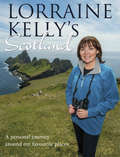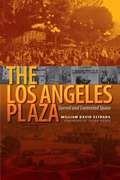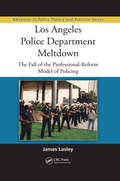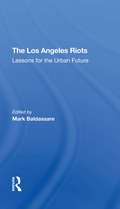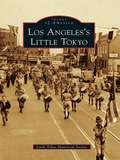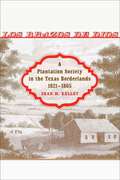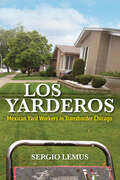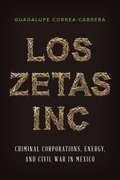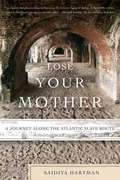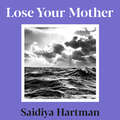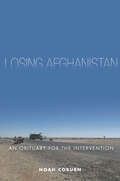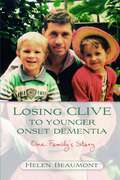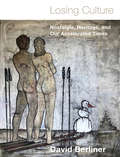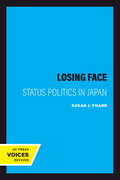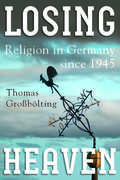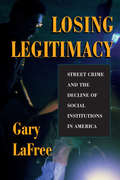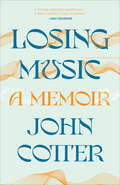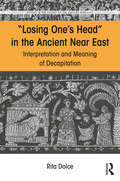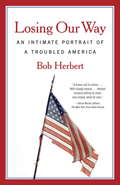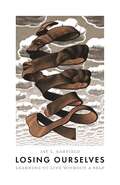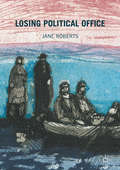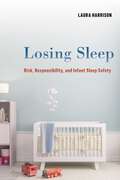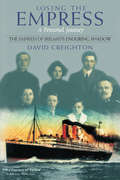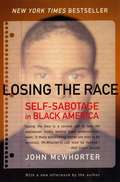- Table View
- List View
Lorraine Kelly's Scotland
by Lorraine KellyFrom childhood family day trips to Loch Lomond, to her days as TVam’s roving correspondent, Lorraine Kelly has covered the length and breadth of Scotland. But certain special places tug at her heartstrings and lure her back time and time again. Travelling to the highlands and islands and all her favourite places in between, this is Lorraine’s personal journey around her beautiful and beguiling country. Each and every stop gives rise to fascinating stories and memories along the way, from her adopted home of Dundee to the wild and remote islands of St Kilda. She revisits childhood haunts in Glasgow, indulges in a spot of whisky-tasting on the island of Islay and reveals what led her to once arrive in Edinburgh pushing a pram and wearing a pair of rollerskates. She rediscovers the joys of the natural wilderness in the Highlands, visits a dramatic Viking fire festival in Shetland and recalls the week she and her family spent hunting the Loch Ness monster . . . Beautifully illustrated with stunning original photographs, Lorraine Kelly’s Scotland is a celebration of a gloriously diverse country with a deep and rich heritage, told with all Lorraine’s characteristic warmth and humour.
The Los Angeles Plaza
by William David EstradaCity plazas worldwide are centers of cultural expression and artistic display. They are settings for everyday urban life where daily interactions, economic exchanges, and informal conversations occur, thereby creating a socially meaningful place at the core of a city. At the heart of historic Los Angeles, the Plaza represents a quintessential public space where real and imagined narratives overlap and provide as many questions as answers about the development of the city and what it means to be an Angeleno. The author, a social and cultural historian who specializes in nineteenth- and early twentieth-century Los Angeles, is well suited to explore the complex history and modern-day relevance of the Los Angeles Plaza. From its indigenous and colonial origins to the present day, Estrada explores the subject from an interdisciplinary and multiethnic perspective, delving into the pages of local newspapers, diaries and letters, and the personal memories of former and present Plaza residents, in order to examine the spatial and social dimensions of the Plaza over an extended period of time. The author contributes to the growing historiography of Los Angeles by providing a groundbreaking analysis of the original core of the city that covers a long span of time, space, and social relations. He examines the impact of change on the lives of ordinary people in a specific place, and how this change reflects the larger story of the city.
Los Angeles Police Department Meltdown: The Fall of the Professional-Reform Model of Policing
by James LasleyOnce considered among the most respected police departments in the world, the LAPD suffered a devastating fall from grace following the 1991 police officer beating of Rodney King and the Los Angeles riots stemming from the officers acquittal in 1992. Unique to the literature of policing, management, and policy studies, Los Angeles Police Departmen
The Los Angeles Riots: Lessons For The Urban Future
by Edgar W Butler Mark Baldassare David O Sears Peter A MorrisonThe Los Angeles riots in the Spring of 1992 were among the most violent and destructive events in twentieth-century urban America. This collection of original essays by leading urban experts offers the first comprehensive analysis of the unrest that took place after a jury acquitted the police officers who were accused of using excessive force in t
Los Angeles's Little Tokyo (Images of America)
by Little Tokyo Historical SocietyIn 1884, a Japanese sailor named Hamanosuke Shigeta made his way to the eastern section of downtown Los Angeles and opened Little Tokyo's first business, an American-style café. By the early 20th century, this neighborhood on the banks of the Los Angeles River had developed into a vibrant community serving the burgeoning Japanese American population of Southern California. When Japanese Americans were forcibly removed to internment camps in 1942 following the attack on Pearl Harbor and the United States' entrance into World War II, Little Tokyo was rechristened "Bronzeville" as a newly established African American enclave popular for its jazz clubs and churches. Despite the War Relocation Authority's opposition to re-establishing Little Tokyo following the war, Japanese Americans gradually restored the strong ties evident today in 21st-century Little Tokyo--a multicultural, multigenerational community that is the largest Nihonmachi (Japantown) in the United States.
Los Brazos de Dios: A Plantation Society in the Texas Borderlands, 1821--1865 (Conflicting Worlds: New Dimensions of the American Civil War)
by Sean M. KelleyHistorians have long believed that the "frontier" shaped Texas plantation society, but in this detailed examination of Texas's most important plantation region, Sean M. Kelley asserts that the dominant influence was not the frontier but the Mexican Republic. The Lower Brazos River Valley -- the only slave society to take root under Mexican sovereignty -- made replication of eastern plantation culture extremely difficult and complicated. By tracing the synthesis of cultures, races, and politics in the region, Kelley reveals a distinct variant of southern slavery -- a borderland plantation society.Kelley opens by examining the four migration streams that defined the antebellum Brazos community: Anglo-Americans and their African American slaves who constituted the first two groups to immigrate; Germans who came after the Mexican government barred immigrants from the U.S. while encouraging those from Europe; and African-born slaves brought in through Cuba who ultimately made up the largest concentration of enslaved Africans in the antebellum South. Within this multicultural milieu, Kelley shows, the disparity between Mexican law and German practices complicated southern familial relationships and master-slave interaction. Though the Mexican policy on slavery was ambiguous, alternating between toleration and condemnation, Brazos slaves perceived the Rio Grande River as the boundary between white supremacy and racial egalitarianism. As a result, thousands fled across the border, further destabilizing the Brazos plantation society. In the1850s, nonslaveholding Germans also contributed to the upheaval by expressing a sense of ethnic solidarity in politics. In an attempt to undermine Anglo efforts to draw a sharp boundary between black and white, some Germans hid runaway slaves. Ultimately, Kelley demonstrates how the Civil War brought these issues to the fore, eroding the very foundations of Brazos plantation society. With Los Brazos de Dios, Kelley offers the first examination of Texas slavery as a borderland institution and reveals the difficulty with which southern plantation society was transplanted in the West.
Los Yarderos: Mexican Yard Workers in Transborder Chicago (Latinos in Chicago and Midwest)
by Sergio LemusMigrants from the Mexican states of Zacatecas, Guanajuato, Jalisco, and Michoacán have become an important presence in Chicago and the Midwest. Many hold jobs as yarderos gardening, caring for lawns, and doing other landscaping work. Sergio Lemus explores the lives of these migrants and looks at the struggles they face as they work to make the city their home. Drawing on fieldwork in South Chicago, Lemus tells the stories of first and second-generation yarderos and discusses the historical, economic, cultural, and political ramifications they face as they acquire their working-class identity. Lemus’s compassionate portrait places them within America’s ongoing tradition as a nation of immigrants while analyzing their place within today’s transborder cultural moment. Perceptive and humane, Los Yarderos reveals how a group of Mexican immigrants navigates the crossings of the borders that divide class, color hierarchies, gender, and belonging.
Los Zetas Inc: Criminal Corporations, Energy, and Civil War in Mexico
by Guadalupe Correa-CabreraThe rapid growth of organized crime in Mexico and the government's response to it have driven an unprecedented rise in violence and impelled major structural economic changes, including the recent passage of energy reform. Los Zetas Inc. asserts that these phenomena are a direct and intended result of the emergence of the brutal Zetas criminal organization in the Mexican border state of Tamaulipas. Going beyond previous studies of the group as a drug trafficking organization, Guadalupe Correa-Cabrera builds a convincing case that the Zetas and similar organizations effectively constitute transnational corporations with business practices that include the trafficking of crude oil, natural gas, and gasoline; migrant and weapons smuggling; kidnapping for ransom; and video and music piracy. <P><P> Combining vivid interview commentary with in-depth analysis of organized crime as a transnational and corporate phenomenon, Los Zetas Inc. proposes a new theoretical framework for understanding the emerging face, new structure, and economic implications of organized crime in Mexico. Correa-Cabrera delineates the Zetas establishment, structure, and forms of operation, along with the reactions to this new model of criminality by the state and other lawbreaking, foreign, and corporate actors. Since the Zetas share some characteristics with legal transnational businesses that operate in the energy and private security industries, she also compares this criminal corporation with ExxonMobil, Halliburton, and Blackwater (renamed “Academi” and now a Constellis company). Asserting that the elevated level of violence between the Zetas and the Mexican state resembles a civil war, Correa-Cabrera identifies the beneficiaries of this war, including arms-producing companies, the international banking system, the US border economy, the US border security/military-industrial complex, and corporate capital, especially international oil and gas companies.
Lose Your Mother: A Journey Along the Atlantic Slave Route
by Saidiya HartmanIn Lose Your Mother, Saidiya Hartman traces the history of the Atlantic slave trade by recounting a journey she took along a slave route in Ghana. Following the trail of captives from the hinterland to the Atlantic coast, Hartman reckons with the blank slate of her own genealogy and vividly dramatizes the effects of slavery on three centuries of African and African-American history. The slave, Hartman observes, is a stranger, one torn from family, home, and country. To lose your mother is to be severed from your kin, to forget your past, and to inhabit the world as an outsider, an alien. There are no known survivors of Hartman's lineage, no relatives in Ghana whom she came hoping to find. She is a stranger in search of strangers, and this fact leads her into intimate engagements with the people she encounters along the way and draws her deeper into the heartland of slavery. She passes through the holding cells of military forts and castles, the ruins of towns and villages devastated by the trade, and the fortified settlements built to repel predatory armies and kidnappers. In artful passages of historical portraiture, she shows us an Akan prince who granted the Portuguese permission to build the first permanent trading fort in West Africa, a girl murdered aboard a slave ship, and a community of fugitives seeking a haven from slave raiders.
Lose Your Mother: A Journey Along the Atlantic Slave Route
by Saidiya HartmanThe slave, Saidiya Hartman observes, is a stranger torn from family, home, and country. To lose your mother is to be severed from your kin, to forget your past, and to inhabit the world as an outsider. In Lose Your Mother, Hartman tracesthe history of the Atlantic slave trade by recounting a journey she took along a slave route in Ghana.There are no known survivors of Hartman's lineage, no relatives to find. She is a stranger in search of strangers, and this fact leads her into intimate engagements with the people she encounters along the way, and with figures from the past, vividly dramatising the effects of slavery on three centuries of African and American history.
Losing Afghanistan
by Noah CoburnThe U.S.-led intervention in Afghanistan mobilized troops, funds, and people on an international level not seen since World War II. Hundreds of thousands of individuals and tens of billions of dollars flowed into the country. But what was gained for Afghanistan--or for the international community that footed the bill? Why did development money not lead to more development? Why did a military presence make things more dangerous? Through the stories of four individuals--an ambassador, a Navy SEAL, a young Afghan businessman, and a wind energy engineer--Noah Coburn weaves a vivid account of the challenges and contradictions of life during the intervention. Looking particularly at the communities around Bagram Airbase, this ethnography considers how Afghans viewed and attempted to use the intervention and how those at the base tried to understand the communities around them. These compelling stories step outside the tired paradigms of 'unruly' Afghan tribes, an effective Taliban resistance, and a corrupt Karzai government to show how the intervention became an entity unto itself, one doomed to collapse under the weight of its own bureaucracy and contradictory intentions.
Losing Clive to Younger Onset Dementia: One Family's Story
by Helen BeaumontClive Beaumont was diagnosed with Younger Onset Dementia at age 45, when his children were aged just 3 and 4. He had become less and less able to do his job properly and had been made redundant from the Army the year before. Clive's wife, Helen, tells of how she and the rest of the family made it through the next six years until Clive died: the challenge of continually adapting to his progressive deterioration; having to address the legal implications of the illness; applying for benefit payments; finding nursing homes; and juggling her responsibilities as a wife, a mother and an employee. She also describes the successful founding and development of The Clive Project, a registered charity set up by Helen and others in a bid to establish support services for people with Younger Onset Dementia. Younger Onset Dementia is comparatively rare, but not that rare. This story is for the family and friends of people with the condition, for the people themselves, and for the professionals working with them.
Losing Culture: Nostalgia, Heritage, and Our Accelerated Times
by David BerlinerWe’re losing our culture… our heritage… our traditions… everything is being swept away. Such sentiments get echoed around the world, from aging Trump supporters in West Virginia to young villagers in West Africa. But what is triggering this sense of cultural loss, and to what ends does this rhetoric get deployed? To answer these questions, anthropologist David Berliner travels around the world, from Guinea-Conakry, where globalization affects the traditional patriarchal structure of cultural transmission, to Laos, where foreign UNESCO experts have become self-appointed saviors of the nation’s cultural heritage. He also embarks on a voyage of critical self-exploration, reflecting on how anthropologists handle their own sense of cultural alienation while becoming deeply embedded in other cultures. This leads into a larger examination of how and why we experience exonostalgia, a longing for vanished cultural heydays we never directly experienced. Losing Culture provides a nuanced analysis of these phenomena, addressing why intergenerational cultural transmission is vital to humans, yet also considering how efforts to preserve disappearing cultures are sometimes misguided or even reactionary. Blending anthropological theory with vivid case studies, this book teaches us how to appreciate the multitudes of different ways we might understand loss, memory, transmission, and heritage.
Losing Face: Status Politics in Japan (Philip E. Lilienthal Asian Studies Imprint)
by Susan J. PharrThis title is part of UC Press's Voices Revived program, which commemorates University of California Press’s mission to seek out and cultivate the brightest minds and give them voice, reach, and impact. Drawing on a backlist dating to 1893, Voices Revived makes high-quality, peer-reviewed scholarship accessible once again using print-on-demand technology. This title was originally published in 1990.This title is part of UC Press's Voices Revived program, which commemorates University of California Press’s mission to seek out and cultivate the brightest minds and give them voice, reach, and impact. Drawing on a backlist dating to 1893, Voices Revived</DIV
Losing Heaven: Religion in Germany since 1945
by Thomas GroßböltingAs the birthplace of the Reformation, Germany has been the site of some of the most significant moments in the history of European Christianity. Today, however, its religious landscape is one that would scarcely be recognizable to earlier generations. This groundbreaking survey of German postwar religious life depicts a profoundly changed society: congregations shrink, private piety is on the wane, and public life has almost entirely shed its Christian character, yet there remains a booming market for syncretistic and individualistic forms of “popular religion.” Losing Heaven insightfully recounts these dramatic shifts and explains their consequences for German religious communities and the polity as a whole.
Losing Legitimacy: Street Crime And The Decline Of Social Institutions In America
by Gary LafreeIn the past fifty years, street crime rates in America have increased eightfold. These increases were historically patterned, were often very rapid, and had a disproportionate impact on African Americans. Much of the crime explosion took place in a space of just ten years beginning in the early 1960s. Common explanations based on biological impulses, psychological drives, or slow-moving social indicators cannot explain the speed or timing of these changes or their disproportionate impact on racial minorities. Using unique data that span half a century, Gary LaFree argues that social institutions are the key to understanding the U.S. crime wave. Crime increased along with growing political distrust, economic stress, and family disintegration. These changes were especially pronounced for racial minorities. American society responded by investing more in criminal justice, education, and welfare institutions. Stabilization of traditional social institutions and the effects of new institutional spending account for the modest crime declines of the 1990s.
Losing Matt Shepard: Life and Politics in the Aftermath of Anti-Gay Murder
by Beth LoffredaThe infamous murder in October 1998 of a twenty-one-year-old gay University of Wyoming student ignited a media frenzy. The crime resonated deeply with America's bitter history of violence against minorities, and something about Matt Shepard himself struck a chord with people across the nation. Although the details of the tragedy are familiar to most people, the complex and ever-shifting context of the killing is not. Losing Matt Shepard explores why the murder still haunts us -- and why it should. Beth Loffreda is uniquely qualified to write this account. As a professor new to the state and a straight faculty advisor to the campus Lesbian Gay Bisexual Transgender Association, she is both an insider and outsider to the events. She draws upon her own penetrating observations as well as dozens of interviews with students, townspeople, police officers, journalists, state politicians, activists, and gay and lesbian residents to make visible the knot of forces tied together by the fate of this young man. This book shows how the politics of sexuality -- perhaps now the most divisive issue in America's culture wars -- unfolds in a remote and sparsely populated area of the country. Loffreda brilliantly captures daily life since October 1998 in Laramie, Wyoming -- a community in a rural, poor, conservative, and breathtakingly beautiful state without a single gay bar or bookstore. Rather than focus only on Matt Shepard, she presents a full range of characters, including a panoply of locals (both gay and straight), the national gay activists who quickly descended on Laramie, the indefatigable homicide investigators, the often unreflective journalists of the national media, and even a cameo appearance by Peter, Paul, and Mary. Loffreda courses through a wide ambit of events: from the attempts by students and townspeople to rise above the anti-gay theatrics of defrocked minister Fred Phelps to the spontaneous, grassroots support for Matt at the university's homecoming parade, from the emotionally charged town council discussions about bias crimes legislation to the tireless efforts of the investigators to trace that grim night's trail of evidence. Charting these and many other events, Losing Matt Shepard not only recounts the typical responses to Matt's death but also the surprising stories of those whose lives were transformed but ignored in the media frenzy.
Losing Music: A Memoir
by John Cotter“In his moving memoir, John Cotter anticipates a world without sound . . . a compelling portrait of how deafness isolates people.” —The Washington PostJohn Cotter was thirty years old when he first began to notice a ringing in his ears. Soon the ringing became a roar inside his head. Next came partial deafness, then dizziness and vertigo that rendered him unable to walk, work, sleep, or even communicate. At a stage of life when he expected to be emerging fully into adulthood, teaching and writing books, he found himself “crippled and dependent,” and in search of care.When he is first told that his debilitating condition is likely Ménière’s Disease, but that there is “no reliable test, no reliable treatment, and no consensus on its cause,” Cotter quits teaching, stops writing, and commences upon a series of visits to doctors and treatment centers. What begins as an expedition across the country navigating and battling the limits of the American healthcare system, quickly becomes something else entirely: a journey through hopelessness and adaptation to disability. Along the way, hearing aids become inseparable from his sense of self, as does a growing understanding that the possibilities in his life are narrowing rather than expanding. And with this understanding of his own travails comes reflection on age-old questions around fate, coincidence, and making meaning of inexplicable misfortune.A devastating memoir that sheds urgent, bracingly honest light on both the taboos surrounding disability and the limits of medical science, Losing Music is refreshingly vulnerable and singularly illuminating—a story that will make readers see their own lives anew.
Losing One's Head in the Ancient Near East: Interpretation and Meaning of Decapitation (Studies in the History of the Ancient Near East)
by Rita DolceIn the Ancient Near East, cutting off someone’s head was a unique act, not comparable to other types of mutilation, and therefore charged with a special symbolic and communicative significance. This book examines representations of decapitation in both images and texts, particularly in the context of war, from a trans-chronological perspective that aims to shed light on some of the conditions, relationships and meanings of this specific act. The severed head is a “coveted object” for the many individuals who interact with it and determine its fate, and the act itself appears to take on the hallmarks of a ritual. Drawing mainly on the evidence from Anatolia, Syria and Mesopotamia between the third and first millennia BC, and with reference to examples from prehistory to the Neo-Assyrian Period, this fascinating study will be of interest not only to art historians, but to anyone interested in the dynamics of war in the ancient world.
Losing Our Way
by Bob HerbertFrom longtime New York Times columnist Bob Herbert comes a wrenching portrayal of ordinary Americans struggling for survival in a nation that has lost its wayIn his eighteen years as an opinion columnist for The New York Times, Herbert championed the working poor and the middle class. After filing his last column in 2011, he set off on a journey across the country to report on Americans who were being left behind in an economy that has never fully recovered from the Great Recession. The portraits of those he encountered fuel his new book, Losing Our Way. Herbert's combination of heartrending reporting and keen political analysis is the purest expression since the Occupy movement of the plight of the 99 percent. The individuals and families who are paying the price of America's bad choices in recent decades form the book's emotional center: an exhausted high school student in Brooklyn who works the overnight shift in a factory at minimum wage to help pay her family's rent; a twenty-four-year-old soldier from Peachtree City, Georgia, who loses both legs in a misguided, mismanaged, seemingly endless war; a young woman, only recently engaged, who suffers devastating injuries in a tragic bridge collapse in Minneapolis; and a group of parents in Pittsburgh who courageously fight back against the politicians who decimated funding for their children's schools. Herbert reminds us of a time in America when unemployment was low, wages and profits were high, and the nation's wealth, by current standards, was distributed much more equitably. Today, the gap between the wealthy and everyone else has widened dramatically, the nation's physical plant is crumbling, and the inability to find decent work is a plague on a generation. Herbert traces where we went wrong and spotlights the drastic and dangerous shift of political power from ordinary Americans to the corporate and financial elite. Hope for America, he argues, lies in a concerted push to redress that political imbalance. Searing and unforgettable, Losing Our Way ultimately inspires with its faith in ordinary citizens to take back their true political power and reclaim the American dream.From the Hardcover edition.
Losing Ourselves: Learning to Live without a Self
by Jay L. GarfieldWhy you don’t have a self—and why that’s a good thingIn Losing Ourselves, Jay Garfield, a leading expert on Buddhist philosophy, offers a brief and radically clear account of an idea that at first might seem frightening but that promises to liberate us and improve our lives, our relationships, and the world. Drawing on Indian and East Asian Buddhism, Daoism, Western philosophy, and cognitive neuroscience, Garfield shows why it is perfectly natural to think you have a self—and why it actually makes no sense at all and is even dangerous. Most importantly, he explains why shedding the illusion that you have a self can make you a better person.Examining a wide range of arguments for and against the existence of the self, Losing Ourselves makes the case that there are not only good philosophical and scientific reasons to deny the reality of the self, but that we can lead healthier social and moral lives if we understand that we are selfless persons. The book describes why the Buddhist idea of no-self is so powerful and why it has immense practical benefits, helping us to abandon egoism, act more morally and ethically, be more spontaneous, perform more expertly, and navigate ordinary life more skillfully. Getting over the self-illusion also means escaping the isolation of self-identity and becoming a person who participates with others in the shared enterprise of life.The result is a transformative book about why we have nothing to lose—and everything to gain—by losing our selves.
Losing Political Office
by Jane RobertsBased on in-depth interviews conducted with British politicians, this book analyses the different impacts of leaving political office. Representative democracy depends on politicians exiting office, and yet while there is considerable interest in who stands for and gains office, there is curiously little discussed about this process. Jane Roberts seeks to address this gap by asking: What is the experience like? What happens to politicians as they make the transition from office? What is the impact on their partners and family? Does it matter to anyone other than those immediately affected? Are there any wider implications for our democratic system? This book will appeal to academics in the fields of leadership, political science, public management and administration and psychology. It will also be of interest to elected politicians in central, devolved and local government (current and former), policy makers and political commentators, and more widely, the interested general reader.
Losing Sleep: Risk, Responsibility, and Infant Sleep Safety
by Laura HarrisonNew insights into the anxiety over infant sleep safetyNew parents are inundated with warnings about the fatal risks of “co-sleeping,” or sharing a bed with a newborn, from medical brochures and website forums, to billboard advertisements and the evening news. In Losing Sleep, Laura Harrison uncovers the origins of the infant sleep safety debate, providing a window into the unprecedented anxieties of modern parenthood. Exploring widespread rhetoric from doctors, public health experts, and the media, Harrison explains why our panic has reached an all-time high. She traces the way safe sleep standards in the United States have changed, and shows how parents, rather than broader systems of inequality that impact issues of housing and precarity, are increasingly being held responsible for infant health outcomes. Harrison shows that infant mortality rates differ widely by race and are linked to socioeconomic status. Yet, while racial disparities in infant mortality point to systemic and structural causes, the discourse around infant sleep safety often suggests that individual parents can protect their children from these tragic outcomes, if only they would make the right choices about safe sleep. Harrison argues that our understanding of sleep-related infant death, and the crisis of infant mortality in general, has burdened parents, especially parents of color, in increasingly punitive ways. As the government takes a more visible role in criminalizing parents, including those whose children die in their sleep, this book provides much-needed insight into a new era of parenthood.
Losing the Empress: A Personal Journey
by David CreightonThe Empress of Ireland’s last voyage ended on May 29, 1914, when she was rammed by a Norwegian coal-carrier in a fog patch on the St. Lawrence River near Rimouski. For David Creighton, her voyage still continues. In Losing the Empress, Creighton delves into the lives of his grandparents - Salvation Army officers who were lost on the Empress - and the lives of their five orphaned children who would soon be plunged into World War I. His discoveries reveal amazing details about the Empress, which sank in fourteen minutes with a greater loss of life than the Titanic disaster. Shipwreck nostalgia, last voyage dinners, Salvationists, the British Empire and the world wars fought to preserve it; everything comes into focus when the author joins Titanic discoverer Robert Ballard on a film shoot at the sunken liner’s site. Losing the Empress lyrically traces a personal journey into the past and into the future.
Losing the Race: Self-Sabotage in Black America
by John H. McWhorterBerkeley linguistics professor John McWhorter, born at the dawn of the post-Civil Rights era, spent years trying to make sense of this question. Now he dares to say the unsayable: racism's ugliest legacy is the disease of defeatism that has infected black America. Losing the Race explores the three main components of this cultural virus: the cults of victimology, separatism, and antiintellectualism that are making blacks their own worst enemies in the struggle for success. <p><p> More angry than Stephen Carter, more pragmatic and compassionate than Shelby Steele, more forward-looking than Stanley Crouch, McWhorter represents an original and provocative point of view. With Losing the Race, a bold new voice rises among black intellectuals.
